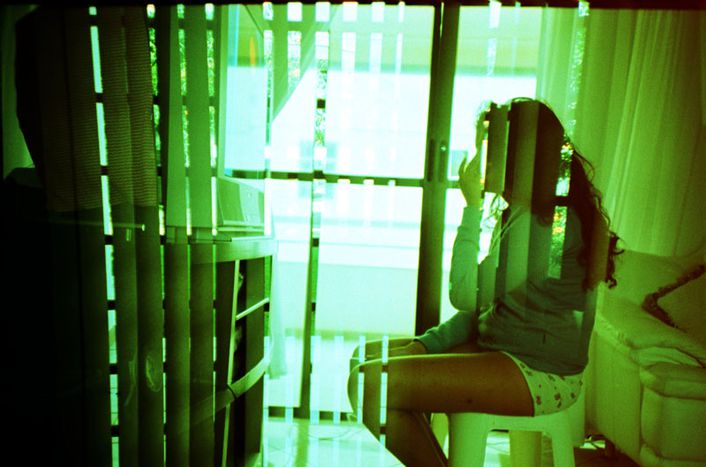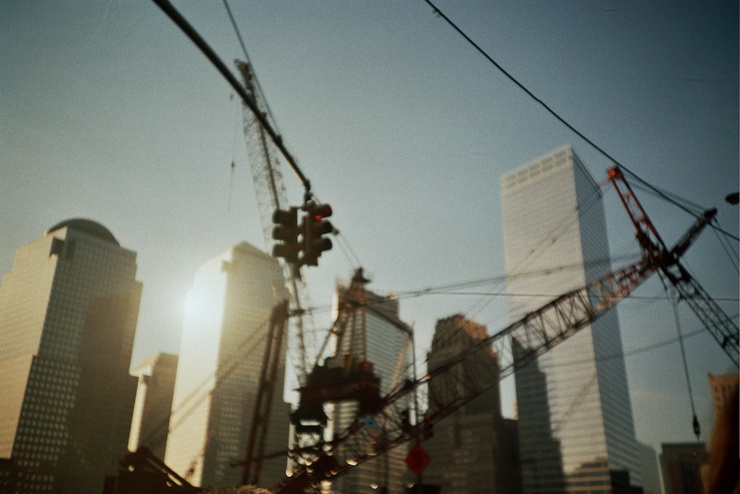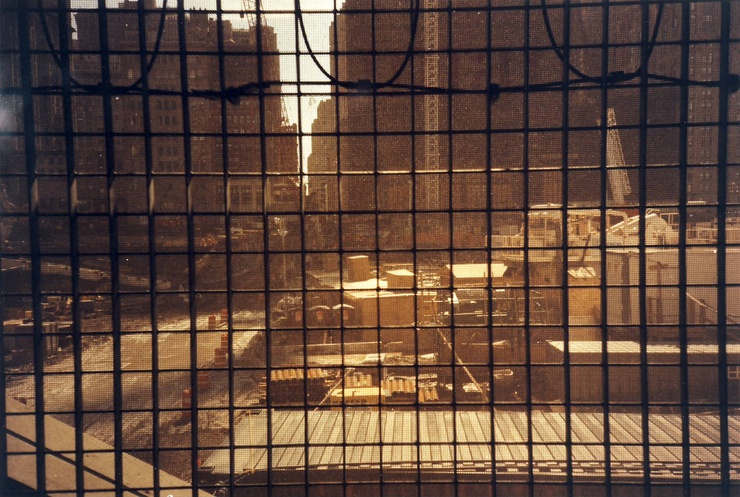
Young Europeans remember 9/11
Published on
It’s eight years since the attacks which killed 2, 752 people, destroyed the World Trade Centres and damaged the Pentagon on 11 September 2001. The cafebabel.com editorial team share their memories from across the waters on the event which shaped America and the world today
‘I had dropped my kid sister off at nursery and switched the box on to watch the first plane hit the Twin Towers. It didn’t seem like a disaster movie on early afternoon TV; every British channel beamed the same image as my mother came running in to digest the images, mouths open. 9/11 remains a poignant date for us, because as a British muslim family, we will always feel the tinge of horror behind the Islamic extremism of the act a little more heavily. It was a precursor to the four bombs which killed 52 and devasted Londoners on 7/7, and hiked up not only our terrorism laws but our public suspicion’
Nabeelah Shabbir, 26, UK
‘I was on the beach with my friends, enjoying the last few days of the holidays before starting my first year at university. My mother called me; a plane had hit the Twin Towers. I thought it was small-scale news, another plane accident. When the second plane hit she called back. I didn’t see any of the images until the evening, but it was just as shocking as catching it live must have been. Was it the beginning of world war three? We were overreacting, but the magnitude of the attacks signalled some kind of change. Everything seemed to have calmed, we were back to normality. But one morning on 11 March, three years ago, my mother called me to tell me about an attack on some trains in Madrid. Unfortunately it wasn’t the last attack we’ve heard about since’
PedroPicón, 24, Spain

‘I was shocked. I had just landed in Dijon to start my exchange year, so there wasn’t any radio, TV or phone in our apartment yet. I had gone to a phone booth in the bumping Rue Berbisey to give my family some news about my first experiences in a foreign country; my father’s usually a soft-spoken man, but I’ve never heard him babble so fast. We ended up spending two hours inside the Fnac store which was five minutes away. It was screening the unthinkable images repeatedly on a huge plasma screen. Back home, the ‘war on terror’ didn’t really affect the German mentality; the then-chancellor, Gerhard Schröder, had opposed the Iraq war and used that to score points in the upcoming elections. Nevertheless, suitcase nukes were found in Koblenz and Dortmund in 2006. Since then, the security system of the entire federal republic has been tightened. The new terrorism law introduced a data retention law, biometric passports in 2007 and a constant state of surveillance. That reminds me, this year I have to renew my passport and will have to give my two fingerprints for the first time...’
Katharina Kloss, 28, France/ Germany
'I was sitting at home reading when the phone rang: it was my aunt, all panicked, who told me that there was an attack on the US. I switched on the TV and caught see one of the towers collapsing. I called my family and we all gathered by the TV set, spending the rest of the afternoon nervously switching from one channel to another, trying to find out from all the pieces of information; what really has happened, why? I couldn’t stop thinking that it can’t be true: even after re-watching the collapse of the Twin Towers for many times, it still looked like a fragment from a science fiction film. The later information reported by the Polish press proved me wrong: apparently I witnessed a landmark in world politics and the real end of the twentieth century'
Marysia Amribd, 26, Poland

'I was in PE [physical education] class. My teacher started murmuring about planes and the World Trade Centre. I had never heard of the World Trade Centre before. In my 14-year-old mind, the USA was a huge evil superpower. It was probably a childish reaction, but I wasn't shocked or upset at all, but awed and excited. I was baffled by how emotional people were getting. I suppose when you've grown up on a diet of Independence Day and Godzilla, the sight of planes crashing into New York isn't all that shocking because it doesn't seem real'
Naomi O'Leary, 22, Ireland
'By the time I got back from dance class, it was already 7pm and I still wasn't aware of anything. Then I turned on my TV and there it was, impossible to miss: every Italian channel was playing the footage of the planes crashing into the Twin Towers on loop. I was used to bombardment of violent images by the media, and at that moment I wasn't aware of the historic import of the event. I was only 17. I wasn't that conscious of politics and history. It's the hype that followed which demonstrates the power of media in creating a collective memory of events. That's what made me realise the magnitude of what happened. In Italy I didn't feel threatened. Some conspiracy-theory fanatics were arguing that 'the mafia protected us.' I don't know if it changed anything in Italy: during the anni di piombo' (The 'years of lead' - late 1960s-1980s in Italy, a period of political and social turmoil marked by acts of terrorism - ed), attacks were common, and many Italians were already wary of muslims before 9/11. There were bomb scares, but people didn't really care; the classic Italian devil-may-care attitude. We wait and see what happens; that's the way it always is'
Lidia Falcucci, 24, Italy
'It was a Tuesday afternoon in high school. My teacher was absent. Time for some TV! Totally content, I fixed myself a snack and switched on the box. Instead of Dawson's Creek and Heartbreak High, a journalist appeared on screen. Without stopping to listen, I started flicking through channels. The same programme was on each one, with images flashing without explanation. What had happened? My mother came home and I told her it was the end of the world. She immediately turned off the TV. That vision of terror stuck in my mind, the close ups of the men jumping. The next day my teacher lead a discussion on it and told us 'I have to change my whole course on the untouchable power of the USA.' America fell with the towers, and it was the geopolitical order that was to suffer in the end. It's marked by the mixing of confused ideas that are underpinned by emotion'
Caroline Venaille, 21, France
Where were you when the attacks happened? Share your opinions in the comments box below



